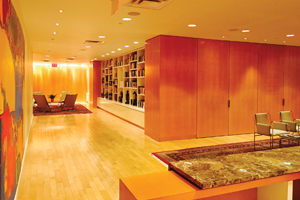Joe, an 85-year-old from the Bronx, N.Y., wanted to include the Edmundite Missions in Selma, Ala., in his will. But first, he needed help from Edmundite Missions’ director of planned giving, Steven Hubbard: To wit, Joe needed Hubbard’s help to fix his cable.
“It’s about relationship,” said Hubbard. “You have to respond to the donor’s need. So often we have an agenda — to make the ask, to talk about the organization’s mission — and we forget what the donor wants. It’s time to listen. Sometimes a donor just wants to talk.”
Hubbard developed a friendship with Joe (and got Joe’s cable fixed in the process). Joe opened a $10,000 gift annuity with Edmundite Missions, referred two friends about annuities, included the Mission in his will and continued regularly giving. “Treat a donor as a family member,” said Hubbard. “Listen and understand what a donor is asking. Follow up on the small things.”
Hubbard and fellow planned giving experts Maureen McCawley and Angela Kwasinski spoke to attendees during the recent National Catholic Development Conference (NCDC) 2013 conference in Grapevine, Texas regarding cultivation and how it relates to planned giving. It’s all about building relationships, they said.
“Because we are a small unit and we have to be very flexible and adaptable, there are two things that are sacrosanct: notes on donor letters and phone calls to donors,” said McCawley, a major and planned giving associate for the Conventual Franciscan Friars Province of Our Lady of Consolation in Mount St. Francis, Ind. “We make these things happen.”
The Friars receive a personal note with a signature from the group’s spiritual director, who will call all donors making gifts of $100 or more. The Friars also recognize birthdays, anniversaries, births of children or grandchildren, deaths of donors or their family members, and will visit local and sometimes far-flung donors in their homes.
McCawley said with only three full-time staff, being organized is essential for the Friars’ success in cultivating planned giving prospects and donors. They have biweekly meetings where they review all contacts of the prior two weeks and make recommendations for the next two weeks’ contacts.
Personal contact is key in cultivating planned giving relationships. “You don’t get gifts without donor relationships,” said Kwasinski, director of donor relations at The Passionists of Holy Cross Province in Park Ridge, Ill.
“Set your organization apart,” Kwasinski said. “By reaching out to donors in creative, honest ways, it forms a bond that places the organization and the people we help at the forefront of donors’ minds.” Kwasinski said that building relationships with donors for a planned giving or major gifts officer is the same as maintaining relationships with your personal friends, except “we’re engaging a few hundred of them a day.”
A one-size-fits-all approach won’t work for either your organization or your donors, said Kwasinski. “Match donors to specific programs and services,” she said. “You want to connect them to the missions that will personally resonate.” Kwasinski related a story about a donor who was passionate about education in India. She connected the donor with one of Passionist priests who had just taken over as principal of a school in India. “She couldn’t have been more excited,” said Kwasinski about the donor.
Kwasinski agreed with McCawley in that you need organization and discipline to build and maintain relationships with donors. “You need detailed record keeping and email reminders,” she said. “Never miss an opportunity to engage.”










